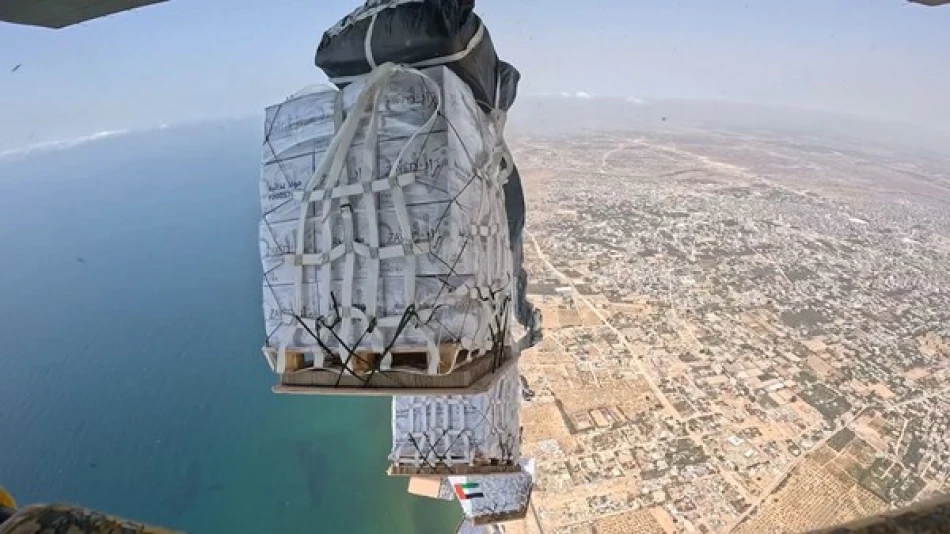
Emirates Carries out 80th Airdrop of Aid to Gaza Through "Birds of Goodness" Operation
UAE Delivers 80th Humanitarian Airdrop to Gaza, Surpassing 4,000 Tons in Aid
The United Arab Emirates has completed its 80th humanitarian airdrop to Gaza as part of its "Birds of Goodness" operation, pushing total aerial aid deliveries beyond 4,068 tons. The mission, conducted in partnership with Jordan, Germany, and Indonesia, underscores the UAE's strategic positioning as a regional humanitarian leader while navigating complex Middle Eastern geopolitics.
Scale and Scope of the Operation
The latest airdrop delivered essential food supplies prepared with support from Emirati charitable organizations and foundations. Since the operation's inception, the UAE has systematically coordinated international relief efforts, leveraging its logistical capabilities and diplomatic relationships to maintain consistent aid flows into the besieged territory.
The 4,068-ton milestone represents one of the most sustained aerial humanitarian campaigns in recent regional history, demonstrating the UAE's commitment to soft power diplomacy through humanitarian assistance.
Strategic Diplomatic Positioning
Regional Coordination Model
The UAE's collaboration with Jordan provides crucial strategic depth to the operation. Jordan's geographic proximity and established humanitarian corridors, combined with the UAE's financial resources and international partnerships, create an effective delivery mechanism that bypasses traditional political obstacles.
The inclusion of Germany and Indonesia in the latest mission signals the UAE's ability to build diverse international coalitions, extending beyond traditional Arab League partnerships to include European and Southeast Asian allies.
Humanitarian Diplomacy as Foreign Policy
This sustained aid campaign reflects the UAE's broader foreign policy strategy of using humanitarian assistance to maintain regional influence while avoiding direct political confrontation. Similar to its approach during the Yemen crisis and Syrian refugee support, the Emirates leverages charitable giving to project soft power across the Middle East.
Operational Challenges and Innovation
Conducting 80 successful airdrops requires sophisticated logistics coordination, particularly given Gaza's restricted airspace and challenging delivery conditions. The UAE's ability to maintain this operational tempo suggests significant investment in specialized equipment and international clearance protocols.
The involvement of multiple international partners also indicates complex diplomatic negotiations to secure flight permissions and coordinate delivery schedules, showcasing the UAE's growing influence in multilateral humanitarian frameworks.
Regional Impact and Precedent Setting
The "Birds of Goodness" operation establishes a template for sustained humanitarian intervention that other Gulf states may adopt. By demonstrating that consistent, large-scale aid delivery is possible through international cooperation, the UAE creates diplomatic space for continued engagement regardless of shifting political dynamics.
The 4,000-ton threshold also represents a significant humanitarian milestone, providing measurable relief impact while reinforcing the UAE's reputation as a reliable partner for international humanitarian organizations and donor countries seeking effective aid distribution channels.
Most Viewed News

 Layla Al Mansoori
Layla Al Mansoori






